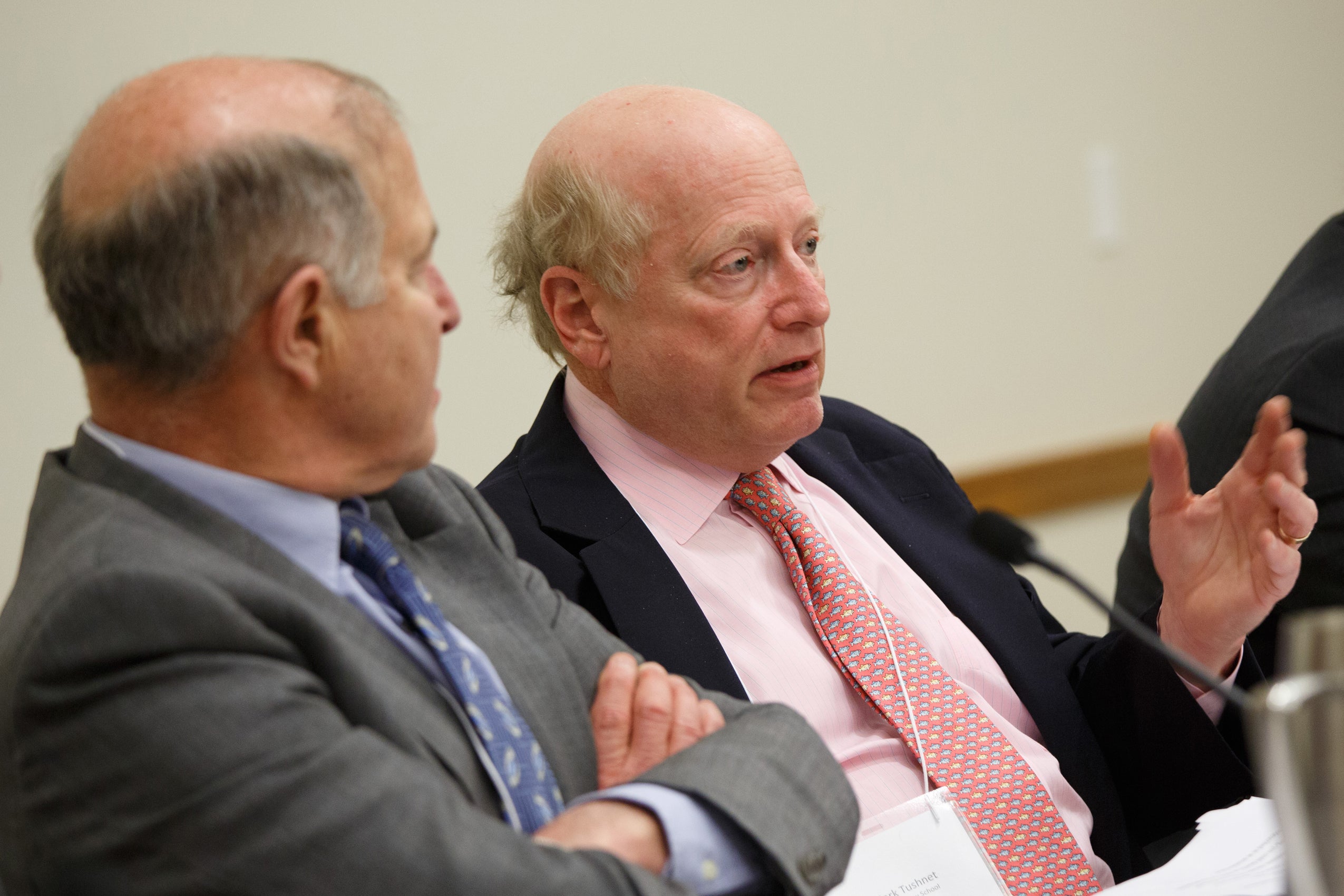In April 2014, at a conference held at HLS, “Religious Accommodation in the Age of Civil Rights,” panelists articulated tensions within constitutional and statutory civil rights commitments. Scholarship stemming from the conference was published this year in special issues of three journals: the Southern California Law Review, the Harvard Journal of Law and Gender, and the Harvard Law and Policy Review. In these issues, authors with divergent views explore how best to respect both religious freedom and guarantees of individual equality and dignity in intimate relationships. Excerpts from several of the articles follow.
“I have been a gay rights advocate for more than 25 years. Here in this article, for the first time, I make common cause with my longtime adversaries. I have worked very hard to create a regime in which it’s safe to be gay. I would also like that regime to be one that’s safe for religious dissenters.”
—Andrew Koppelman, professor, Northwestern Law School, “Gay Rights, Religious Accommodations, and the Purposes of Antidiscrimination Law,” Southern California Law Review
“If ‘religious liberty’ does not include a ‘right to discriminate’ then, obviously, there is very little conflict between ‘religious liberty’ and antidiscrimination laws. But, in fact, religious liberty does sometimes include a right to discriminate in ways that would otherwise violate civil rights laws. … Although it cannot plausibly be defined away or declared illusory, it is still crucial to remember that this tension is among civil rights claims.”
—Richard W. Garnett, professor of law and of political science, University of Notre Dame, “Religious Accommodations and—and Among—Civil Rights: Separation, Toleration, and Accommodation,” Southern California Law Review
“Discrimination represents a serious harm in its own right—regardless of the availability of alternatives. A black person made to sit at the back of the bus is harmed, though he arrives at his destination. A woman denied employment on the basis of sex is not made whole, though she secures a position elsewhere. A same-sex couple refused service by one bakery suffers injury, though a second bakery will serve them. By the logic of Hobby Lobby, however, any time a state or private entity fills the gap caused by a business’s discriminatory denial of statutory rights, its employees and would-be customers are not harmed.”
—Elizabeth Sepper, associate professor, Washington University School of Law, “Gendering Corporate Conscience,” Harvard Journal of Law and Gender
“One defender of accommodations describes them in these terms: ‘Religious people are subject to two sets of sometimes competing obligations; a secular government that is decently modest about its own pretensions will try to accommodate those allegiances if it can.’ A statement I once heard at a conference on religious liberty from the Mennonite theologian John Howard Yoder suggests a response. As I recall the statement, Yoder said, ‘It’s not the Christian’s role to tell Satan how to do his job,’ the referent of ‘Satan’ being ‘the government.’”
—HLS Professor Mark Tushnet, “Accommodation of Religion 30 Years On,” Harvard Journal of Law and Gender
***
